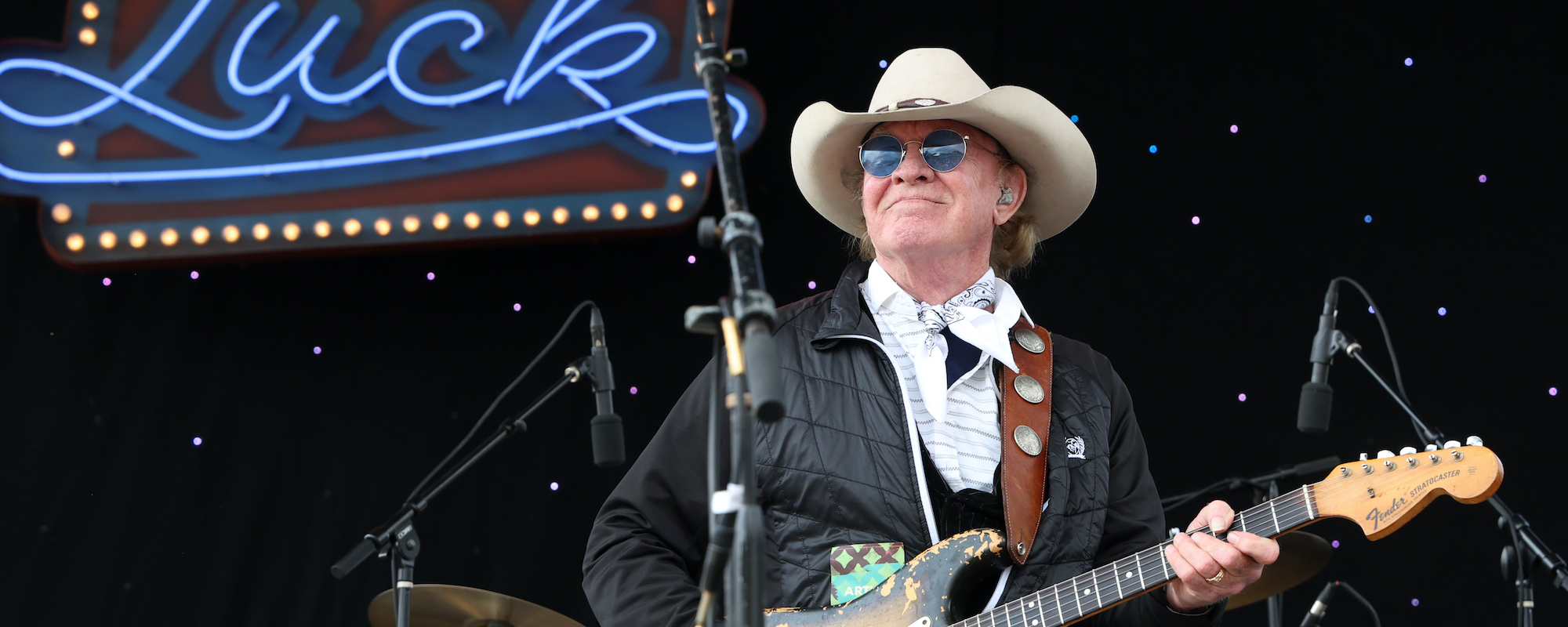In addition to his work as a prolific songwriter, film actor, and lifelong human rights activist, Kris Kristofferson was a trailblazer, rule-breaker, and true musical renegade whose songs changed the Nashville music scene—and the songwriting game in general—forever. Bob Dylan, another genre-defining artist, put it best in his 2015 MusiCares Person of the Year speech.
Videos by American Songwriter
“Everything was alright until Kristofferson came to town. They ain’t seen anybody like him. He came into town like a wildcat, flew his helicopter into Johnny Cash’s backyard like a typical songwriter. He went for the throat. You can look at Nashville pre-Kris and post-Kris, because he changed everything.”
We take a look at five Kris Kristofferson songs that set the future standard for songwriting, starting with the cut Dylan mentioned by name in his speech.
“Sunday Mornin’ Comin’ Down”
When the topic of Kris Kristofferson came up in Bob Dylan’s MusiCares speech, the first song Dylan mentioned was “Sunday Mornin’ Comin’ Down,” and it’s easy to see why. Kristofferson’s 1969 classic painted a different picture of the hedonism typical of the time. I woke up Sunday morning with no way to hold my head that didn’t hurt, he began, speaking to every down-and-out lush who woke up with a pounding headache the morning after. The song was miserably melancholic and captivating in its vulnerability.
“Sunday Mornin’” commanded the attention of other musical giants like Johnny Cash, who recorded arguably the most famous version of the song while Kristofferson was still working as a part-time janitor. “That one song ruined Tom T. Hall’s poker parties,” Dylan said. “It might have sent him to the crazy house.”
“Me and Bobby McGee”
Countless artists, historians, and fans have cited Kris Kristofferson’s greatest lyric of all time as coming from his early 1970s track “Me and Bobby McGee.” Freedom’s just another word for nothin’ left to lose, the refrain calls. Nothin’ don’t mean nothin’ if it ain’t free. From its simplistic poignancy to the quintessentially American imagery of faded blue jeans, dirty red bandanas, and a diesel truck roaring down the highway, the iconic track certainly deserves a place among the best of the American musical canon.
Ray Stevens, who was the first to record a version of “Sunday Mornin,’” argued that Kristofferson’s music cut so deeply because of its impeccable timing. “He was very talented, very smart, and right on time with his style,” he later said. “There are very few writers who get that spark at the right time.”
“Help Me Make It Through The Night”
Kris Kristofferson’s “Help Me Make It Through The Night” might seem tame by today’s musical standards. But in 1970, this track cut through the tongue-in-cheek innuendos and double entendres typical of the time. Kristofferson wasn’t interested in making a song that skirted around modest radio censorship. He pushed aside lacey frills and turns of phrase and put his argument plainly: intimate connection makes life’s difficulties bearable.
Kristofferson’s opening lines seem to harken to a time when a woman’s undone hair was reserved for her most intimate moments: Take the ribbon from your hair, shake it loose, and let it fall. He defied societal norms around sexual modesty, imploring, I don’t care who’s right or wrong. I don’t try to understand. Let the devil take tomorrow, ‘cause tonight, I need a friend.
“Jesus Was A Capricorn (Owed to John Prine)”
A touching ode to a man whose career he helped kickstart, Kris Kristofferson’s 1972 track “Jesus Was A Capricorn (Owed to John Prine)” was a stunning tribute as much as it was a scathing criticism of Christianity. Long hair, beard, and sandals and a funky bunch of friends, Kristofferson sang. Reckon they’ll just nail him up if he comes down again. The singer-songwriter approached his commentary on religious hypocrisy with humor and wit, much like the man to whom he dedicated the song.
‘Cause everybody’s gotta have somebody to look down on, the chorus argues. Prove they can be better than at any time they please. Someone doin’ somethin’ dirty decent folks can frown on. You can’t find nobody else, then help yourself to me.
“To Beat the Devil”
Kris Kristofferson wasn’t just a ladies’ man or a man’s man; he was an Everyman. Kristofferson wrote songs for the people, including the Average Joes, the high and mighty, and the musicians like himself who were just trying to say their piece while they had a chance to do so. No song encapsulated his attitude toward that last demographic, like “To Beat the Devil,” a 1970 track about beating the devil by drinking his beer and stealing his song.
The song is a timeless ode to musicians, both the famous and decidedly un-famous. It’s a testament to the pitfalls of the music industry, hedonism, and the commercialization of creativity. Artists still resonate with the hope and motivation Kristofferson imbued in this classic track, even decades later.
Indeed, if the narrator walking into the smoky tavern in “Beat the Devil” stepped inside from a “Pre-Kris Nashville,” he certainly walked back out onto the sidewalk in a “Post-Kris” Music City, USA.
Photo by Michael Putland/Getty Images













Leave a Reply
Only members can comment. Become a member. Already a member? Log in.